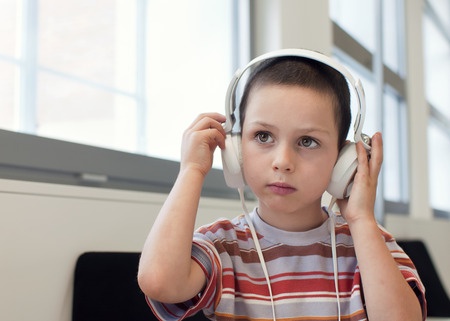
Treatments for ADHD
By Dr. Andrew Eberding, N.D.
For years people have been expressing concern about the number of children who are now prescribed Ritalin or Adderall for managing behaviour and concentration. A question that should be kept in the back of every parent’s mind is, “Do these drugs really work?”
When I ask this question, the parents of my patients often look at me stunned. They tell me how much better behaved and focused their child is when medicated. I think it is obvious in the short term children do have better attention and impulse control. These are the facts that get distributed to doctors and patients’ parents, but is it the complete truth of the matter?
It is the long-term results which matter the most for the child and everyone around them. What most parents and patients have not been told is ongoing tracking of behaviour and academic achievement has shown disappointing results. Comparisons between treated and untreated groups show equivalent educational success and comparable behaviour after several years. To make matters worse, people treated as children with these medications are smaller in adulthood compared to their peers and are subject to numerous other side-effects along the way (depression, high blood pressure, headaches and numerous others).
These drugs are actually stimulants, bringing up the question, “How does stimulating someone’s brain calm them down?” Originally, experts theorized ADHD patients had different brain connections resulting in this contradictory effect. But we now know this is not true as many healthy people (especially studying college students) have similar effects when they self-medicate to help focus. Studies have shown that all children respond the same when medicated. Basically, when given a boring or repetitive task to do people are more successful if they take a stimulant. However, the treatment does not improve a person’s ability to learn material.
The problem that I see is the positive effects fade over time; the medication simply becomes less and less effective at making any difference in a helping a person function. This is similar to the effects of caffeine; initially, it gives an energy boost but eventually, with prolonged use, you are boosting from a lower energy state than your original one. Indeed, you may be worse off then when you started, because you have adapted to its presence. Stimulants’ effectiveness in treating ADHD is gone after 3 or more years when tracked by research.
So where does this leave patients and parents who feel they need do something? Giving children medications does not help manage the cause of the condition, yet the vast majority of research that is funded is targeting drug development. This is not because there is a lack of interest in other treatments but designing and managing studies of other interventions is inherently more complex and costly. Clinical experience has shown other changes, such as counselling, lifestyle and nutrition can make a big difference. The challenge is the condition is caused by a single factor and without professional training it can be very difficult to determine what changes are going to have the greatest impact.
As a Naturopathic Doctor who treats ADHD patients some of many issues I find in need of correction may include:
- Body Chemistry: This can only be determined through laboratory testing. Some examples are iron levels, electrolytes, excesses of metabolites, blood sugar management and thyroid hormone levels.
- Nutrition: Food sensitivities, imbalance in types of fats available, overexposure to food additives, insufficient individual vitamins and minerals and a deficit of healthy flora.
- Inadequate Detoxification Pathways: often due to constipation, overexposure, genetic vulnerability or organ dysfunction.
- Lifestyle factors: Sleep inadequacy, anxiety and stress management, activity levels and counselling may need to be addressed; these changes require more time and effort from the patient, the family and the society in general.
This is just a framework and by no means covers off all the possibilities of changes that may be required. As with any medical intervention, no two patients are ever identical. Each patient presents a new puzzle to solve before a patient can achieve their optimum mental and physical state. From my perspective, medications are simply a bandage that needs to eventually be removed; if you are not treating the underlying problem you might discover you are just masking the real challenge.
